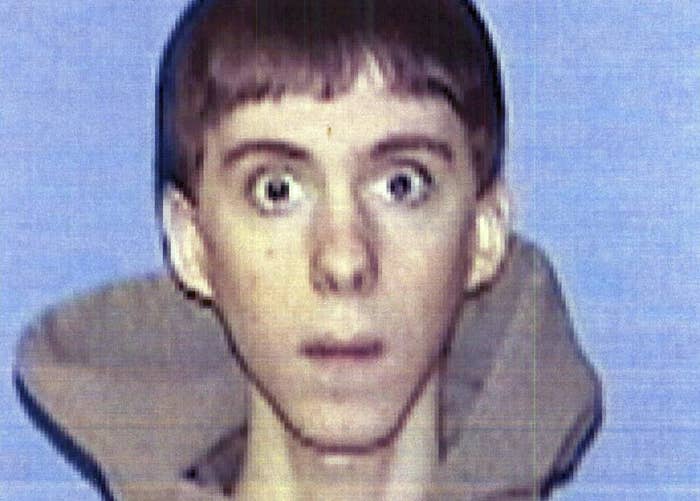
A new report from a yearlong study by the Connecticut Office of the Child Advocate finds that Adam Lanza's mental health issues went untreated for years leading up to the Sandy Hook Elementary School massacre.
According to the report, Lanza, who was 20 when he died, and his parents "did not appear to seek or participate in any mental health treatment after 2006."
The report found that Lanza's "pediatric records from age 13 to 17 note his obsessive compulsive behaviors, markedly underweight presentation (Lanza was anorexic at the time of his death), psychiatric diagnoses, and repeated homebound or independent study" from school.
However, there is no record that Lanza underwent any mental health treatment or was taking any medication during this period.
According to the researchers, at age 14, Lanza was evaluated by the Yale Child Study Center in New Haven, Connecticut. At the time, Lanza's parents were told that if they did not seek treatment for him, his mental health issues would lead to a "deteriorating life of dysfunction and isolation."
After the evaluation from Yale, Lanza's father, Peter Lanza, did attempt to get him treatment, but Adam Lanza resisted and disagreed with the diagnoses, according to the report.
Nancy Lanza, his mother, reinforced Adam Lanza's desire to not seek treatment for his mental health.
The OCA report is also critical of the educational professionals that dealt with Lanza, designing an individual educational plan for him after he was withdrawn from the normal high school classroom setting at his mother's request.
The report found records indicating that the school system "unwittingly enabled Mrs. Lanza's preference to accommodate and appease AL through the educational plan's lack of attention to social-emotional support, failure to provide related services, and agreement to AL's plan of independent study and early graduation age 17."
Ultimately, the OCA believes that it was not just the lack of appropriate mental health treatment that led Lanza to gun down 20 students, six teachers, and his mother on Dec. 14, 2012; it was a combination of this neglect, along with his atypical preoccupation with mass shootings and "unfettered access to guns."
The report concludes that, while the authors describe "predisposing factors and compounding stresses" in Lanza's life, much like the police report released last year, it does not suggest a motive for the mass killing that occurred in Newtown.
The authors concluded that "there was not one thing that was necessarily the tipping point driving AL to commit the Sandy Hook shooting. Rather there was a cascade of events, many self-imposed, that included: loss of school; absence of work; disruption of the relationship with his one friend; virtually no personal contact with family; virtually total and increasing isolation; fear of losing his home and of a change in his relationship with Mrs. Lanza, his only caretaker and connection; worsening OCD;
depression and anxiety; profound and possibly worsening anorexia; and an increasing obsession with mass murder occurring in the total absence of any engagement with the outside world."
The authors added, "The attack on Sandy Hook Elementary appears to have been a purposefully thought-out and planned attack—AL did not just 'snap.'"
